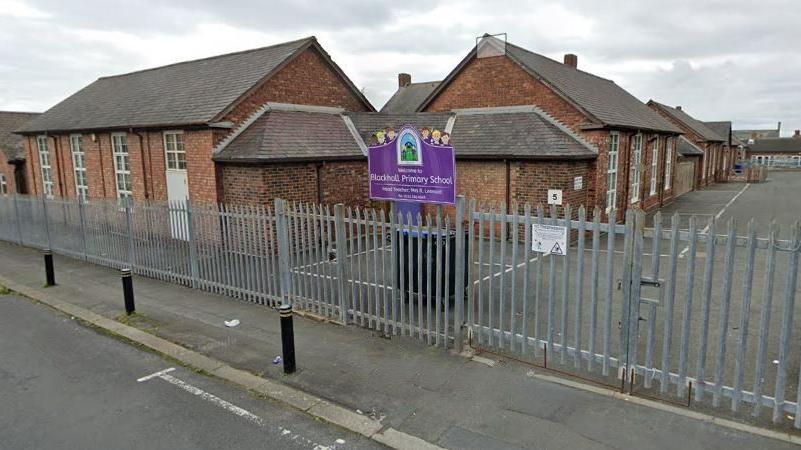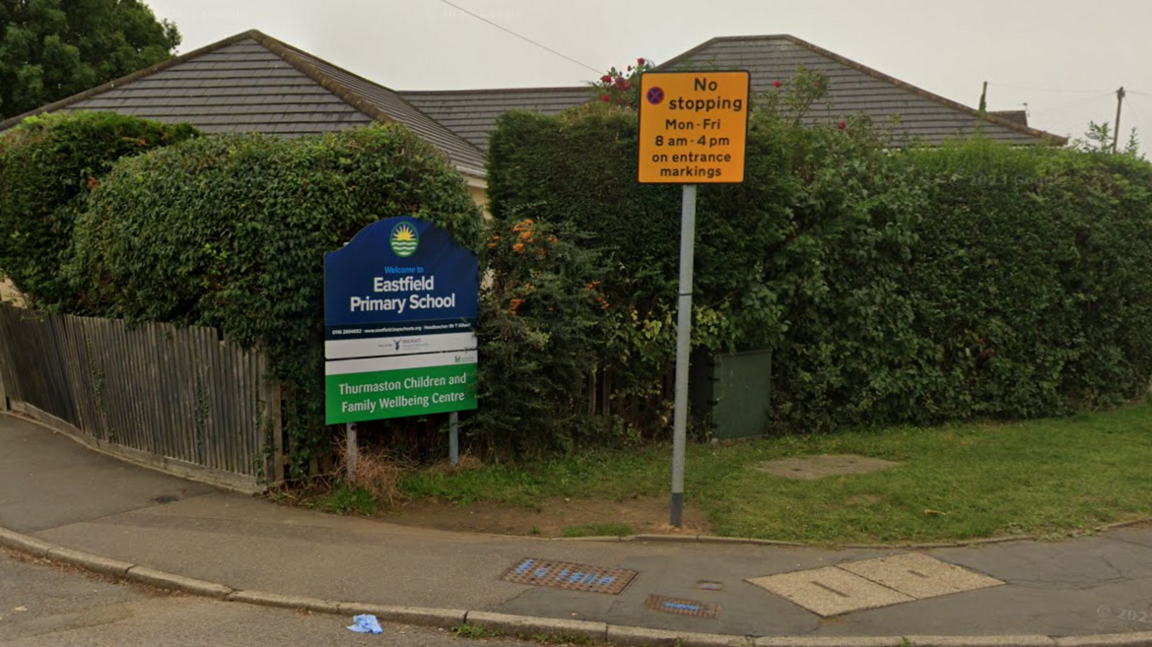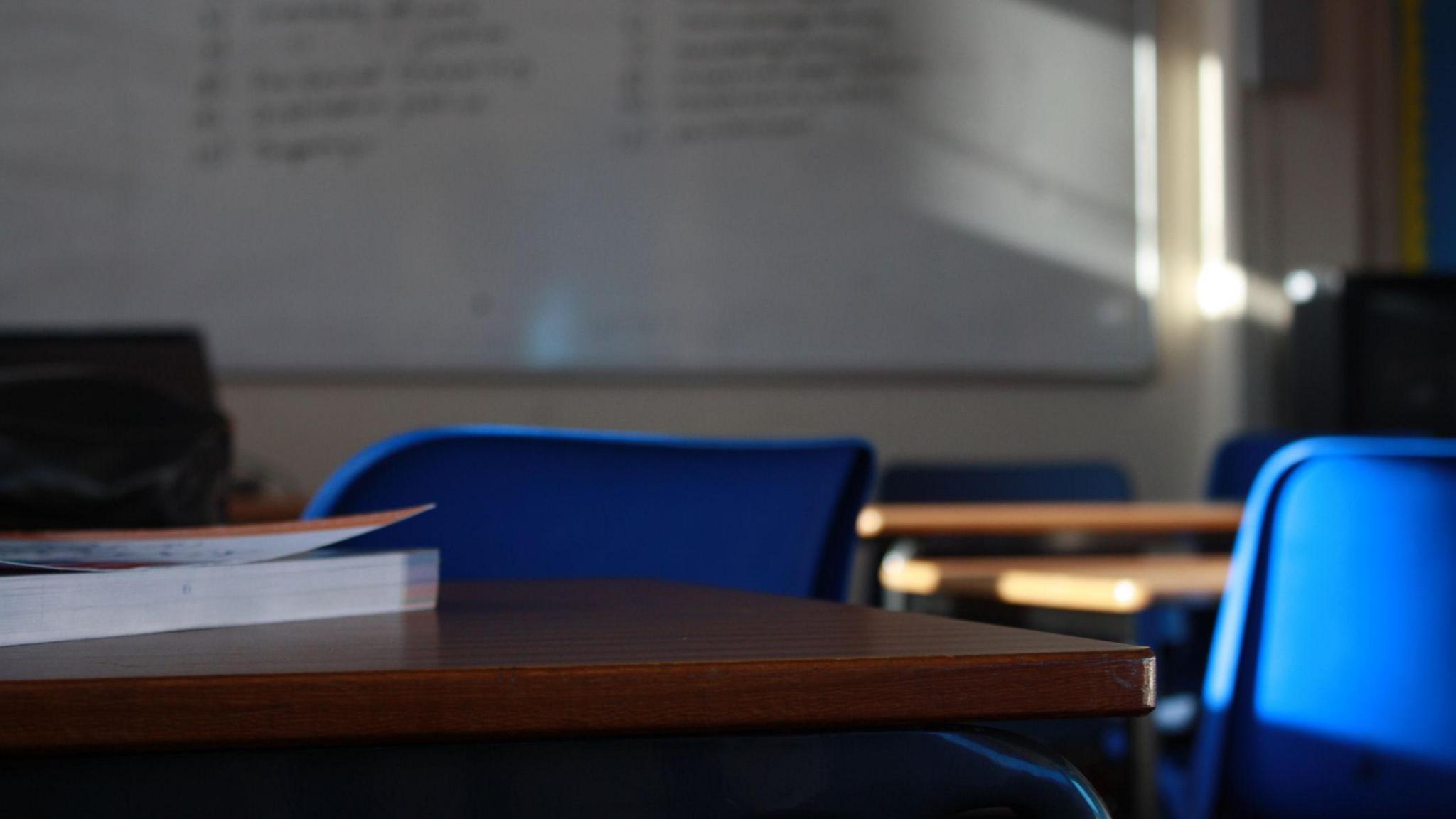Headteacher who went to spa during work avoids ban

Joanna Clark was headteacher at Blackhall Primary School for 12 years
- Published
A headteacher who went to a spa during working hours has avoided a ban from the profession.
Joanna Clark was a headteacher at Blackhall Primary School in Hartlepool between 2009 and 2021.
A report by the professional conduct panel for the Department for Education (DfE) showed Mrs Clark also failed to keep accurate DBS check records and failed to get a fence repaired in the playground, which allowed children to leave the school.
Although the Teaching Regulation Agency (TRA) panel found her behaviour amounted to unacceptable professional conduct, the secretary of state for education decided there was a "strong public interest consideration" in retaining her in the profession.
The report looked into a raft of alleged misconduct, external, with seven out of the 22 allegations proven by the panel.
Some issues raised dated back as far as 2012, but most were alleged to have taken place between 2019 and 2020.
'Short of standards'
Mrs Clark admitted visiting the Ramside Spa during working hours, as well as failing to keep a record and inform staff of her location.
The panel found this "fell significantly short of the standards expected of the profession".
It also found a broken fence between the play area and the staff car park, which she failed to have repaired, was unsafe as children could get over it and leave the premises.
The report said this happened on at least one occasion.
No favouritism
Another allegation said Mrs Clark had discriminated against a group of children with Special Educational Needs (SEN) by separating a Year 5 class into two groups - one with no SEN children and one where most children had additional needs.
The split was first implemented informally in Year 2 and later formalised until the groups reached Year 5, the report said.
The panel found it was not unreasonable to divide a large year group into two classes based on ability, so "lessons and support could be targeted to the needs of the pupils".
The report added: "The panel found that Mrs Clark did not demonstrate favouritism, or discrimination, by maintaining the division."
During Mrs Clark's tenure as headteacher, the school was inspected by Ofsted three times, with the rating going from Satisfactory in 2010 to Good in 2012 and 2017.
"Each inspection report included praise for Mrs Clark's leadership at the school," said the report.
Durham County Council received an anonymous whistleblowing complaint against Mrs Clark, this was referred to the TRA, and she resigned in August 2021 before the conclusion of a disciplinary process.
Show of remorse
The panel considered whether she should be banned from teaching in light of her behaviour, but said there were "extensive mitigating factors".
In the written decision, the secretary of state said Mrs Clark had "demonstrated both insight and remorse" and had undergone safeguarding training.
She had also presented a "substantial number" of character references which described her "good character and teaching abilities" and the panel had found evidence her actions were not deliberate.
The panel believed there was "a strong public interest" in retaining Mrs Clark in the profession.
The secretary of state concluded a prohibition order was not "proportionate or in the public interest" and the publication of findings "would be sufficient" to send a message to the teacher as to the standards of acceptable behaviour.
Blackhall Primary School has been approached for comment.
Follow BBC Tees on X,, external Facebook, external, Nextdoor and Instagram, external. Send your story ideas to northeastandcumbria@bbc.co.uk.
Related topics
- Published14 January

- Published9 January
